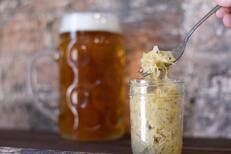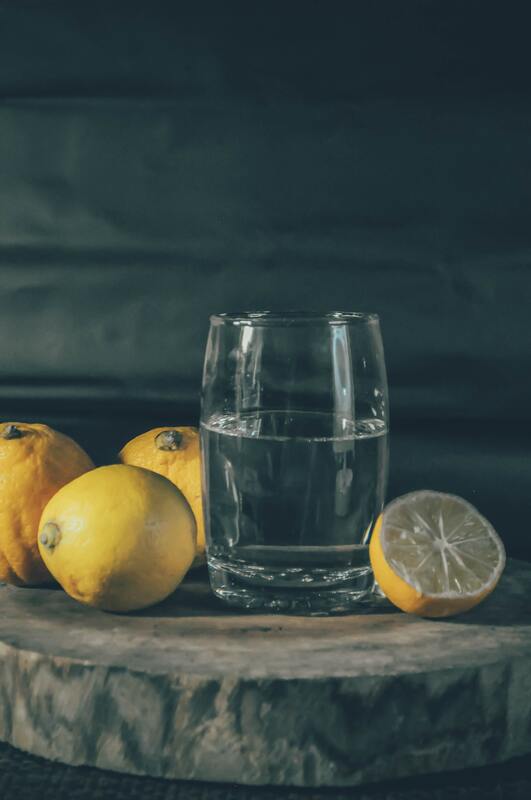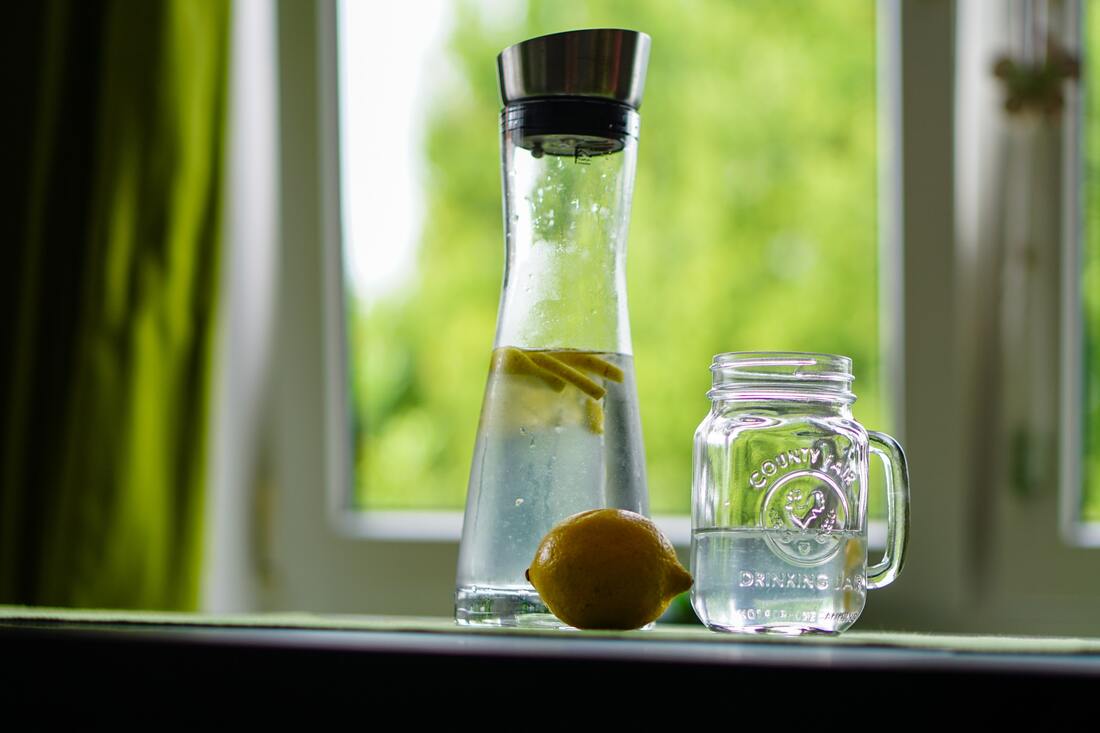What exactly is the “Gut Microbiome”?
The microbiome is composed of bacteria, viruses, fungi and other microorganisms. We host a lot of these little guys, and some work for good in their world, and others for evil.
Trillions of these microbes exist in your gut, mainly inside your large intestines.
This collection of up to apx 1000 different species that make our guts their home, play a critical role in our health. Each of them playing a different role and either enhancing our health or hijacking the situation creating chaos. In this instance, the wider variety the better as new science suggests, various “good bacteria” will keep “bad bacteria” in check and the variety has adaptability to “keep the peace” in there.

Some foods have negative effects on our gut flora like; red meat, high-fat dairy products, and fried foods that all reduce the growth of healthy bacteria and enhance the growth of “bad” bacteria linked to chronic disease. (Physician Committee for Responsible Medicine, n.d.)
Though not all disease begins in the gut, many chronic metabolic conditions are hypothesized to be caused or influenced by chronic gut inflammation which can rise from dysbiosis or "unbalanced" gut bacteria.
Chronic, low-grade, or systemic inflammation may be harmful, as it lasts long term because it is not as apparent as acute inflammation and many people may not even know it's happening. Chronic inflammation affects your entire body and is not just isolated to the gut.
For example, your blood vessels such as your coronary arteries may be inflamed, joints, tissues, and possibly structures in your brain.
Obesity, heart disease, type 2 diabetes, metabolic syndrome, depression, IBD, IBS, Crohn's, and numerous others have all been studied for a strong association with altered gut flora and low grade chronic inflammation.
Too much alcohol, caffeinated, and sugary drinks can also alter gut flora in a negative way, but these seem to be less harmful when consumed in moderation.
The one drink that seems harmful even in very small doses, almost immediately… Diet sodas!
Aspartame is used in many diet sodas, like Coke Zero Sugar, Fanta Zero, and Minute Maid Light, according to the Coca Cola Co. website. While Diet Coke contains sucralose marketed as Splenda and acesulfame potassium. A and a can of Diet Coke contains around 180 mg of aspartame. These artificial sweeteners are found in more and more low calorie, or no sugar drinks marketed to be healthier options.
Aspartame can also be found in flavoured teas, energy drinks, coffee flavourings, protein shakes, flavored milk, juices and other flavoured beverages. Aspartame is used as a sugar alternative in low- or reduced-carbohydrate foods such as cereals, granola bars and protein bars.
You may find snack foods like low-fat yogurt, pudding, jello and fruit cups might contain aspartame. Check the ingredients list of all of these items and others such as ice cream, frozen fruit pops, hard candy and chewing gum. Other sugar-free sweet foods like breath mints, syrups and jellies can contain aspartame.
You might even find it hiding in medications like "easy to swallow" meds, that have a slightly sweet taste.
A study, published in Molecules, looked at the relative toxicity of the main artificial sweeteners we find in calorie free drinks like; aspartame, sucralose, saccharin, neotame, advantame and acesulfame potassium-k and ten sports supplements containing these sweeteners.
It found that the bacteria in the digestive system became toxic when exposed to tiny concentrations of the sweeteners. The scientists found that toxins were released when gut bacteria were exposed to each artificial sweetener, and it only took 1 mg/ml of the artificial sweeteners to turn the bacteria toxic.
That's led scientists to conclude that: "This is further evidence that consumption of artificial sweeteners adversely affects gut microbial activity which can cause a wide range of health issues". (American Associates, 2018)
This October 2018 collective study was published and scientists from universities in Israel and Singapore found that six common artificial sweeteners were toxic to gut bacteria. Enhancing supportive evidence that we need to consider whether these products are safe at all for human consumption.
Some debate whether going back to drinking pop and sports drinks with regular old sugar might be better for health in the long run, but let's face it, refined sugar can be toxic in the body at the rates we are consuming it these days.
Now that we are considering what might be a healthier choice for ourselves, including all our little hitchhikers, let's definitely give a little look at the ingredients labels. Even when you know a product, ingredients change, companies change, once you get in the habit of label reading, it does become less complicated.
Of course I always enjoy a 1 or 2 ingredient bevy, but I live in this world too, and understand that we all have to wade through the massive amounts of products that are labelled "healthy", and we need to make some decisions about what to put in the cart!
My top pick for bubbly sweet, fizzy drinks….. Drum roll please…..
Kombucha
There are so many local suppliers that even if you’re not down with brewing your own at home, there are many craft companies to supply you with this beneficial booch!
Kombucha is a fermented tea that has been consumed for thousands of years. Not only does it have the same health benefits as tea providing antioxidants, it's also rich in beneficial probiotics, great for gut health!
There are tons of flavours, it’s fizzy fun, and has great benefits to health.
Note* May not be suitable for people dealing with dysbiosis or on a low fodmaps diet. Talk to a practitioner to see if it's alright for your individual protocols.
Another great alternative to pop is;
Sparkling water with a slice of fruit.
I love to freeze chunks of fruit and use them as ice cubes to make it a cold and delightful bubbly drink for those hot and sunny afternoons in the garden.
Hello lemon, mango, mint!
The last but not my least favourite, that even packs a caffeine punch is;
Home brew iced tea.
So many pre-made ice teas have way too much sugar for my taste! I love to use a local brewers organic Maritime Breakfast black tea, chilled overnight with a touch of maple syrup and tons of lemon! Oh just thinking about it, I’m going to put the kettle on!
A touch of natural sweetness, but not too much, and over the top lemon! So refreshing as a treat!
My very favourite of all… The simplest, healthiest, most thirst quenching, good for your body, and your mind…
Water!!
Water is my best suggestion for hydration and hydrating well throughout the year. While there is a need for electrolytes during vigorous and lengthy activity, that you can read more about by here, water throughout the day will keep you hydrated, active, and alert!
It protects our joints and cartilage.
Water keeps the cartilage around our joints hydrated and supple, ensuring that our joints stay lubricated. It also protects our spinal cord and tissues, keeping us healthy from the inside out. The rubbery material that coats our bones is about 85% water. To keep this protective material healthy, we need to keep hydrated. We ourselves are made up of apx 70% water!
It helps us think more clearly.
Dehydration causes shrinkage of brain tissue. So when we haven’t been drinking enough water, our brains have to work a lot harder to perform at the same level.
It’s been linked to heart health.
There seems to be a link between risk of death from coronary heart disease and water intake: Research has shown both that consuming more water means a lower risk of death from coronary heart disease and that risk of death rises when intake of “high-energy fluids” (like soda and juice) increases. (Chan J, Knutsen SF, Blix GG, Lee JW, Fraser GE., 2002)
It can improve mood.
Drinking water makes us feel so refreshed that it actually improves our state of mind. You don’t even have to be severely in need of it to benefit: Even mild dehydration has been shown to negatively impact moods.
It keeps things moving.
Water helps better digestion, by helping dissolve fats and soluble fibre, and keeping things lubricated. Although I don’t recommend drinking water while you are eating meals, if you are well hydrated throughout the day, drinking enough water prevents constipation and also reduces the burden on the kidneys and liver by helping to flush waste products, reduces transit time and makes elimination easier.
Drinking it may help prevent headaches, naturally.
Going without water for too long causes headaches for some people and has been identified as a migraine trigger. If you’ve already been hit with a dehydration-triggered headache, you’ll need significantly more water to help it go away. Try drinking two to four cups of water for headache relief within one to two hours.
It could aid weight loss.
Anyone looking to lose weight could be helped by upping their water intake. Studies have found that when participants drink water a while before a meal, they lose weight faster than those who did not drink water. Extra H2O helps us eat less by making us feel full, and it may also boost metabolism. People often mistake thirst cues for hunger and reach for a snack before trying to keep hydration in check.
Even though I like straight water as my beverage of choice 90% of the time, flavoured waters, fresh juices and even hydrating fruits and veggies will add to your hydration throughout the day.
So try upping your water game this summer for your body, gut health, and your mind! And if you try any of these yummy healthy alternatives to water, drop me a line and tell me what you think.
We all know that drinking water and eating healthy is key, but it's all in the habits that we form. Not the information we already know, but what we do with it.
If you're looking for the tools and support for better habits and making them stick, give the office a call for a free 20 min intro session to see if working with a Holistic Nutritionist would serve you.
Simple but delicious meal plans, fun activity, accountability and support for you to succeed.
We focus on heart health but accept all clients and their health & wellness needs.
It's a great time of year to start fresh, with renewed energy and focus to start an amazing journey of your best health & happiness!
References
(n.d.). Retrieved from Physician Committee for Responsible Medicine:
https://www.pcrm.org/health-topics/gut-bacteria
Chan J, Knutsen SF, Blix GG, Lee JW, Fraser GE. (2002, May 1). Water, other fluids, and fatal coronary heart disease:the Adventist Health Study. Retrieved from PubMed:
https://www.ncbi.nlm.nih.gov/pubmed/11978586
American Associates, B.-G. U. (2018, October 18). Artificial sweeteners have toxic effects on gut microbes.Retrieved from Science Daily:
https://www.sciencedaily.com/releases/2018/10/181001101932.htm
PubMed.Systemic inflammation and the brain: novel roles of genetic, molecular, and environmental cues as drivers of neurodegeneration.
https://www.ncbi.nlm.nih.gov/pubmed/25698933
Thomas B. PubMed.(Dis)Trust your gut: the gut microbiome in age-related inflammation, health, and disease.
https://www.ncbi.nlm.nih.gov/pmc/articles/PMC5512975/

